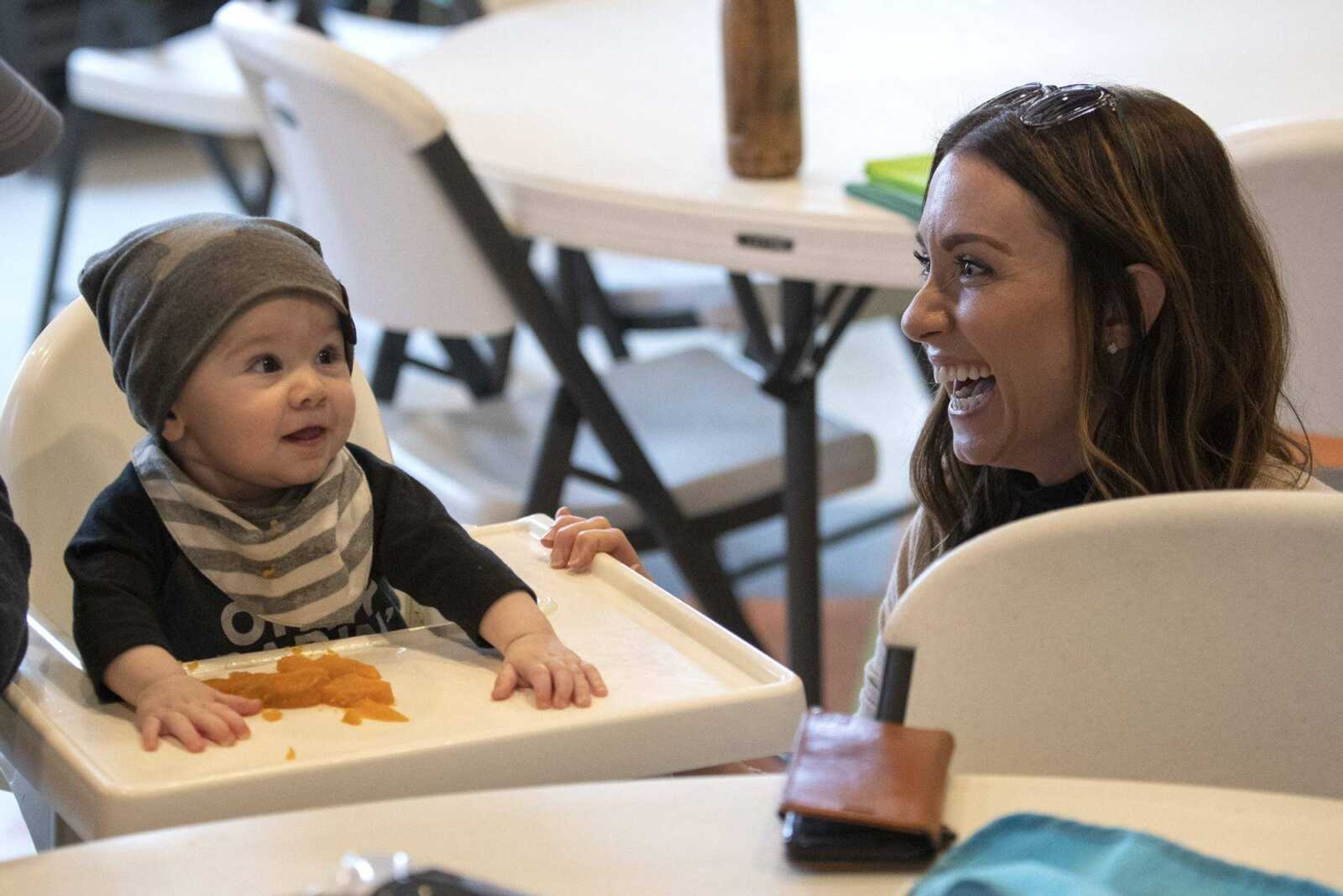Local nutritionist runs business to help new parents with baby food choices, habits
For registered dietitian Ellen Gipson, proper nutrition is both a personal and professional passion, and about a year ago, it led her to launch a series of classes for new parents and their babies to start the little ones on solid foods at their own pace -- baby-led weaning...
For registered dietitian Ellen Gipson, proper nutrition is both a personal and professional passion, and about a year ago, it led her to launch a series of classes for new parents and their babies to start the little ones on solid foods at their own pace -- baby-led weaning.
Gipson, formerly in menu development for the Jackson school district, said by the time children reached school age, their eating habits were already established. If healthy eating wasn't already in the picture, she said, "it was almost too late."
When her daughter was born, Gipson wanted to stay home and devote more time to her family, but she also wanted to remain in her career field.
Gipson had a lot of ideas on how to bring proper nutrition and eating habits to people -- she is a group fitness instructor, and health fairs and other promotions were going well, but she continued to think about other niche opportunities.
And as she started feeding her own daughter, she learned about baby-led weaning.
The name paints a bit of an incomplete picture, Gipson said. It's about whether a baby can be fed real food, she said.
"Look back at how your grandmother, great-grandmother fed a baby," Gipson said. Before the advent of commercially available, processed baby food, the family's newest members often ate what the rest of the family ate: fruits and vegetables, even the main dish.
Gipson said she's frequently asked if an 8-month-old baby can really eat certain foods, such as corn on the cob, and yes, she said, you can feed a baby real food.
"You're teaching them, visually, what they'll eat," Gipson said.
Babies also learn important relational information, Gipson said, including what different tastes and textures are, what happens when food is dropped or held or squished.
That kind of tactile information is simply not there with pureed baby food, Gipson noted.
Chewing is another skill this technique helps bolster, Gipson said.
"They have to have the opportunity to fail," she said.
"But a child has to be developmentally ready," she added -- neck muscles have to be developed enough to hold up the baby's head, for one, she said.
Gipson works one-on-one with some clients, but the majority of her teaching is in two areas: a general-knowledge class for parents interested in the process, and a smaller group for parents and babies together, complete with food.
"I wanted to show parents what they could do," Gipson said of starting the classes a year ago.
Additionally, "I think people need physical support and comfort (through the learning process)," Gipson said.
New parents often feel isolated, or as if their child is the only child with a particular problem or behavior, and that simply isn't so, she said.
Gipson said the first time a baby eats solid food is a moment for parents, so when she was scouting locations for her first class last year, it was important to her to find a space that was both clean and fun.
She found it at Discovery Playhouse at 502 Broadway in Cape Girardeau -- which has been a great partnership, she said.
And, she said, many of her clients come to her through physician referrals, who get a lot of questions about feeding.
"Most are first-time parents or raising a picky eater -- or know someone who is," Gipson said.
"All kids go through a picky phase. They're asserting independence," she said, but if children are fed a wide variety of foods, say 100 or so, if they drop 80 percent of the foods they'll eat, they're still eating 20 different foods, and that's much easier to plan for.
It comes down to a division of responsibility, Gipson said. Parents decide what is offered to eat, and when. Children decide what they eat and how much.
Setting up a healthy relationship with food, and setting consistent expectations, are key, Gipson said.
In the past year, more than 60 families have been through Gipson's training, she said. She keeps class sizes small so she can devote more time to each family. She also provides individual coaching, and her fees vary for the different levels, she said.
But this way, she can create a lifestyle and a living that suits her and her family's needs, Gipson said -- and gives her an opportunity to help families rethink the way they eat.
"If you feel better, you'll be a better parent," Gipson said, and eating better food makes that easier all around.
mniederkorn@semissourian.com
(573) 388-3630
Connect with the Southeast Missourian Newsroom:
For corrections to this story or other insights for the editor, click here. To submit a letter to the editor, click here. To learn about the Southeast Missourian’s AI Policy, click here.









